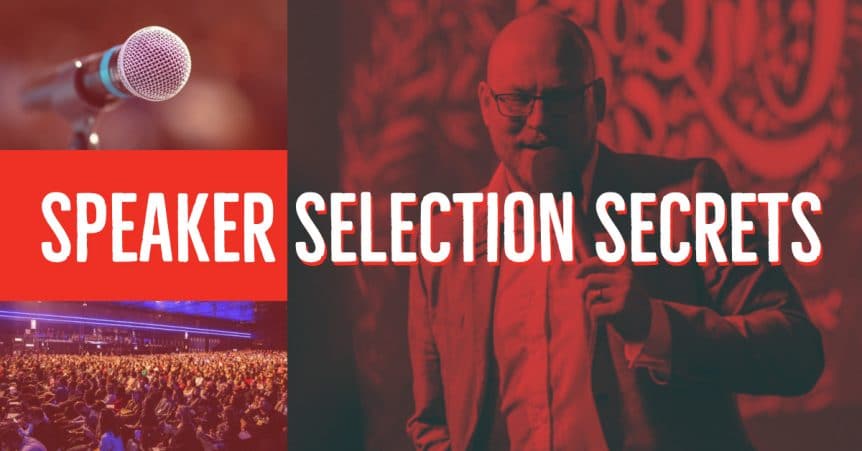A great speaker can make or break your event. Will the speaker you selected inspire and entertain your audience or put them to sleep with off-topic information and poor presentation skills? Will they bring the audience to their feet with applause and cheering or make them wish they were sitting at the back to prepare for a quick and immediate escape?
Speakers can make the crucial difference in the perceived success of any event and help to generate conversation and compliments long after the stages, podiums and floor exhibits are packed up and shipped home. Take the time to do your homework, and you can add that extra cherry to the top of your attendee’s experience! [Discover How to Quantify Your Event’s Success]
Smart Steps to Choosing an Event Speaker
How do you make sure your speakers are relatable, charismatic, and most importantly, that they add value for your attendees? Which speakers will engage and connect with your attendees and create a buzz during and after the event is over?
We researched some of the top event speaker experts to highlight their smart advice.
BEFORE YOU START. Review and stay ultra-focused on your event and target audience goals. Define them clearly and concisely.
- What is your main event objective?
- What does your event audience look like?
- What is the desired goal of the speaker?
- What presentation style is most appropriate?
- What is your budget?
Is your event meant to be more informal or formal, educational or entertaining, or perhaps more hands-on rather than lecture style?
Consider the demographics of your audience; are they baby boomers or millennials? These will make a difference in their expectations of your event speaker.
What does your speaker style need to evoke to fit your audience and event objective? Is your speaker laid back or three-piece suit and is their style more lecture or storytelling?
Budget plays a big role. Average speakers have fees that can range from $2,000-$30,000 with major players asking for $50,000 or more. NOTE: You will also usually need to cover the cost of travel and accommodations above their speaking fee.
Fully exploring these questions first will help you narrow your focus and laser-in on the right candidates without wasting time, money, or energy.
A great tip to keep in mind is the American Marketing Association’s speaker selection Rule of Three: Hot Topic, Hot Speaker, and Hot Company. Never settle for less than 2 out of 3!
EXPERT ADVICE ON SPEAKER RESEARCH. Once you have completed your initial event and audience rundown, you’re ready to put on your lab coat and start researching potential candidates.
To get your beakers and Bunsen burners in the right working order, just follow these Essential Speaker Research Tips:
- Start Early. Ideally, begin 6-12 months before your event and remember that highly sought speakers are usually booked a year in advance.
- Use online speaker bureaus, online forums, similar events, and presentation websites like SlideShare to search and review presentations specific to your defined topics and event themes. Also, don’t be afraid to ask your past speakers for recommendations of their fellow colleagues. You would be amazed how often they will lead you to an up-and-coming, yet-to-be-discovered expert or influencer.
- Find and watch videos of your candidates. Are their style and topic relevant to your defined goals? Are they engaging the audience and keeping them on the edge of their seats? Do they seem like a good fit for your event? Remember, you are the casting director of this event, and these performance reels are priceless in helping you build out the perfect occasion “ensemble!”
- Vet their resume. Do they have experience with similar events and speaking gigs?
- Will they do pre- and post-event marketing? This can be extremely helpful in generating buzz and increasing attendance. It is also a great way to follow-up with attendees and keep the conversation going long after the event is over.
- Finally, make sure to check references.
MAKING THE OFFER. Once you have narrowed your selection, it’s time to reach out and make an offer. Don’t be shy, this is what speakers do for a living!
Negotiating the Rate
If you think the speaker you want is a bit out of your price range, there are few things you can try to lower their fees. Make them a counter offer and try to sweeten the pot by offering some extras like purchasing copies of their book for attendees, promoting them on all your social channels, or even creating a video of their presentation that they can use for their own social media and marketing.
Consider a sponsor who is willing to pay the fee for premiere event branding or “red carpet access” to the speaker. These VIP options may include:
- Dinner out the night before
- One-on-one session with the sponsor’s leadership team
- Signed copies of their book
Speaker Logistics
As a final note in the process, don’t forget to factor in and plan for all speaker logistics. The short list would be:
- A signed speaker agreement contract
- Travel and accommodations coordination
- Transportation to and from the event venue
- Special speaker requests and dietary considerations
- Presentation platform (PowerPoint, Keynote, Google Slides), audio/visual needs, and stage requirements
- Q&A session needs and/or book signing requirements
- Follow-up engagement with a thank you and any speaker gifts
Great speakers are a critical factor in the success of any conference, and the quality of their presentations will definitely impact how your event is ultimately evaluated. Start early, do the work and guarantee an unforgettable and inspiring experience for your audience!
Meeting Planner’s Guide to Hiring A Great Speaker
For a fantastic PDF, The Good Meeting Planner’s Guide to Hiring A Great Speaker, from Goodman Speakers. Follow the link below and download their valuable guide to help you find the perfect fit for your next event!
More meeting planning resources: Picking the perfect date for your event.
Share this Post

